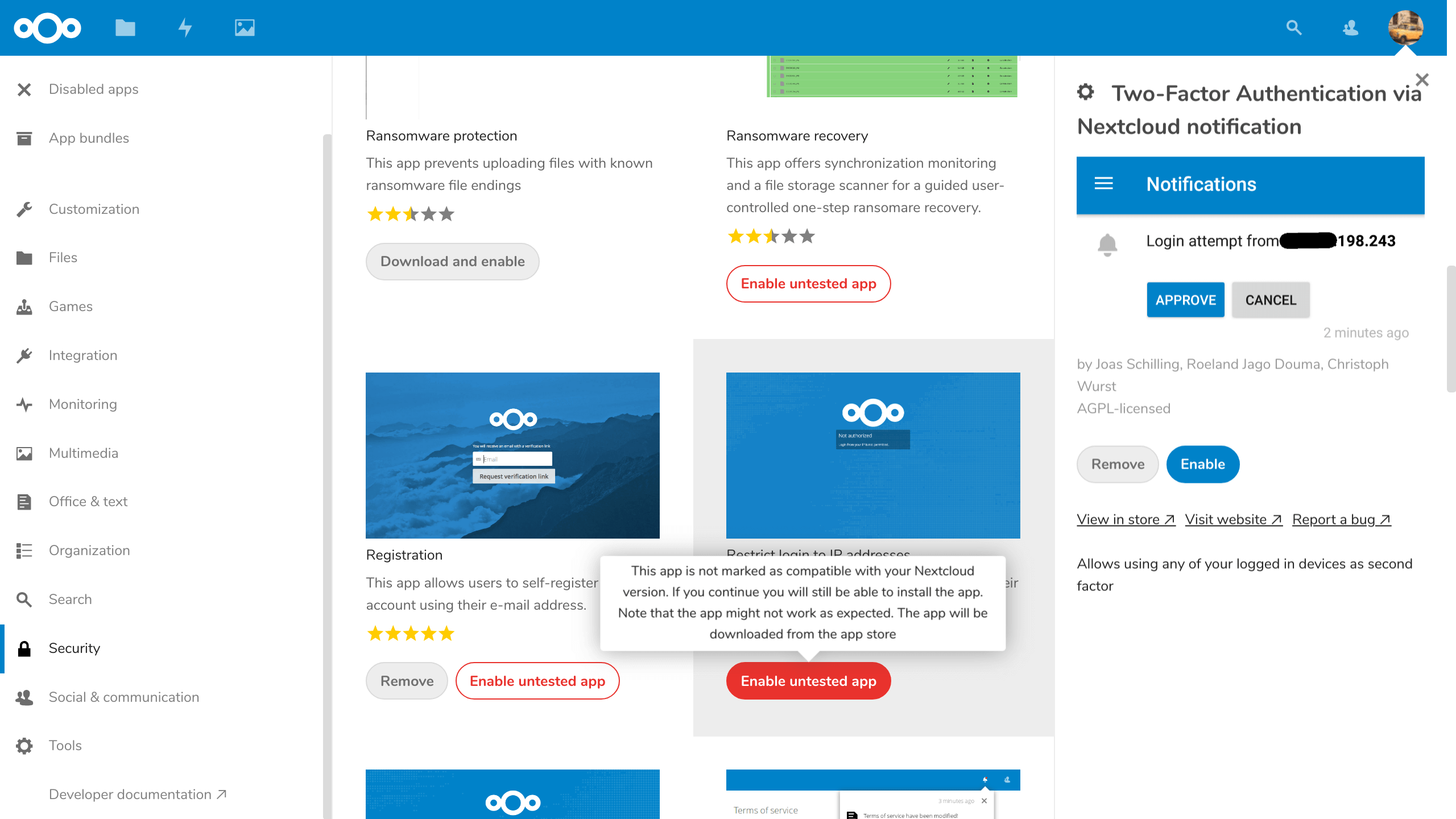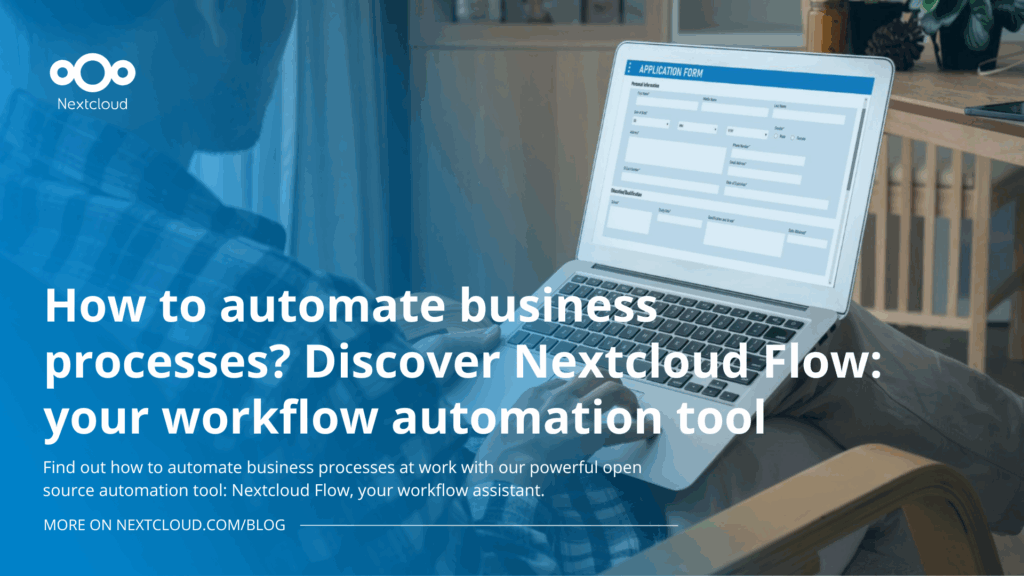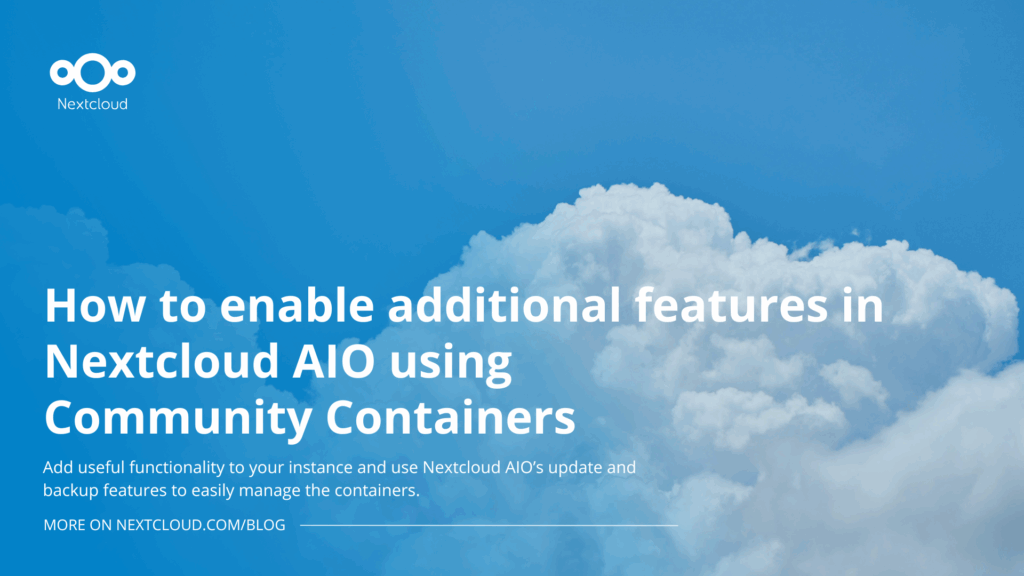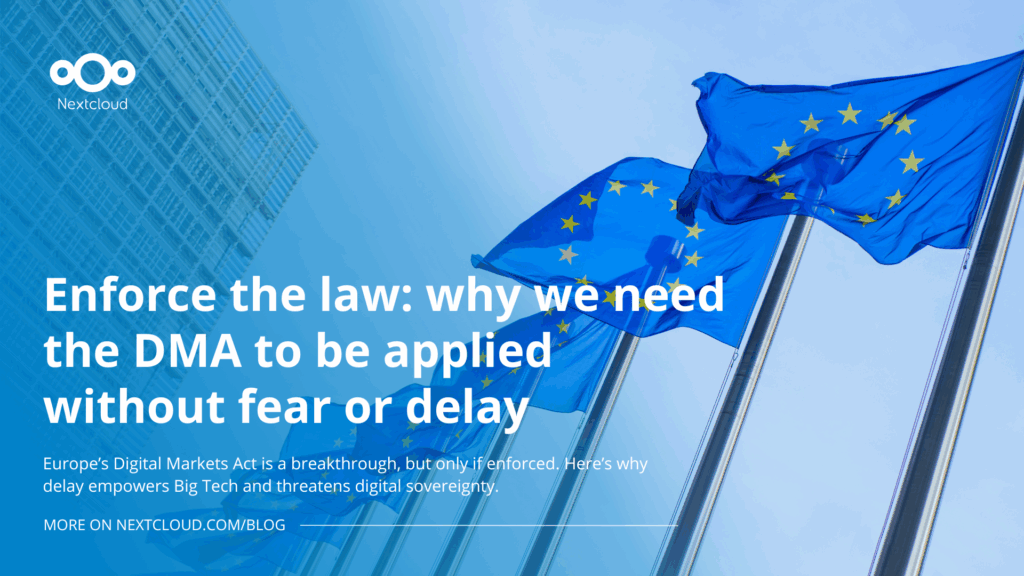New Nextcloud developer program: work with us!
Nextcloud was always designed as a software platform and not a monolithic application. This is why we have the apps concept, many of the APIs and why we push open standards.
In the past, many developers and companies used these capabilities. Today, we are launching the new Nextcloud developer program to bring these capabilities to the Next-level!
Here’s all the news from the Nextcloud Conference:
- Nextcloud 17 scales up and improves data protection with Remote Wipe, collaborative text editor, 2FA updates, IBM Spectrum Scale support and Global Scale improvements
- Nextcloud 18: Flow makes it easy to automate actions and workflows
- Consistent file system view with Nextcloud and IBM Spectrum Scale
- Nextcloud GmbH doubles hackerOne Security Bug Bounties
- New Nextcloud developer program: work with us!
- Nextcloud announces virtual data room solution for ultimate protection of data during sensitive negotiations
- Fresh from the conference: Nextcloud Android client 3.8 with U2F, TLS 1.3, Remote Wipe and more
- Nextcloud Conference: Nextcloud iOS client release introduces new share view, dark mode, better performance
- Fresh from the conference: Nextcloud Desktop client 2.6.0 with new Login Flow, second test version of Virtual Drive
Join the program
We are looking for individual developers and companies to work with us in building new apps.
There are several things you can do:
- Develop a complete new server side application on top of Nextcloud leveraging the Nextcloud framework for authentication, storage, distribution and many other things.
Examples would be the recently released OneDrive external storage, the new Maps app or the SecSign ID authentication app. - Write a plugin that extends or changes the behavior of Nextcloud.
Examples include the HSTS app which adds a HSTS header to HTTPS responses or the OCR app which adds a OCR option in the Files app. - Integrate other software, services and projects with Nextcloud.
For example, look at Moodle, RocketChat or Zimbra. - Write new desktop or mobile apps that interact with a Nextcloud server.
For example KDE and GNOME integration or the Deck Android app.
Nextcloud is a very popular software platform
So why is Nextcloud a great foundation for your app and why does it make sense to integrate with Nextcloud?
Nowadays we estimate the number of active servers to be between 250.000 and 300.000 with tens of millions of users. That makes Nextcloud with quite some margin the most deployed on premise file sync & collaboration platform! In other words, building a Nextcloud app means having a huge audience who can install your app with a single click!
Why is Nextcloud so immensely popular? It provides what people need!
Nextcloud’s mission is to be the decentralized central hub that allows you to stay in control of all your data, communication and collaboration needs securely, protecting user’s privacy. That is the reason why home users, companies, universities and the German and French governments and many other organizations from the EU trust Nextcloud to handle their data and meta data.
Nextcloud started like an open source alternative to Dropbox. More like a tool to store, sync and share files. Nowadays things have changed and we are competing with services like Google GSuite and Office 365, covering a lot more than normal file syncing.
As a full alternative to the propriety and centralized services from Microsoft, Google, Dropbox, Apple and others, with Nextcloud you can do collaborative office document editing, use a calendar, contacts, do group-chats, video and audio calls, emails, notes, RSS feeds, project management drawings, manage passwords and a lot more. All of that 100% Open Source and self-hosted of course.
Nextcloud is also very scalable. It runs on tiny systems like Raspberry Pie up to a group of server clusters distributed over several hosting centers and continents with millions of users.
Why join the program: 8 more reasons
- Nextcloud is and will remain 100% free and open source software. This creates a fair playing-field for everyone and makes sure that we all benefit from each others work. We are all equal and follow the same AGPL rules.
- Open Source guarantees that you can always run Nextcloud and your application in all scenarios without the need to buy a license or have a vendor lock-in.
- There is no Contributor License Agreement or other legal work or contracts needed. No one has to transfer ownership of the code to another entity. Everyone keeps the ownership over their own work.
- Nextcloud has good developer documentation. All other apps are open source and can be used as blue prints. Developing a Nextcloud app is easy!
- Nextcloud has millions of users. Your work is immediately available to a huge install base.
- Nextcloud has an AppStore where you can easily make your work available to all Nextcloud users. So a lot of users will test and use your app.
- The Nextcloud community is very welcoming and friendly. So if you ever need any help or support then someone will want to help you and answer your questions.
- There are several events like the yearly Nextcloud Conference where you can get in contact with the developers, attend talks and workshops to get on hand training.
We at Nextcloud are looking forward to work with other projects and companies to integrate their software and promote the integration together. If you have build an app or want to build one and would like to get a blog published, or even see if there is a way to work with Nextcloud GmbH to monetize your work, shoot us an email!
All the information and the useful links are listed on the new developer portal page.
If you have any questions about these new opportunities for developers to build on top of Nextcloud you can always contact us.
Let’s make a difference and help users take back control over their data and communication!










